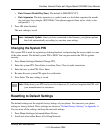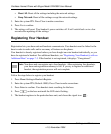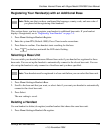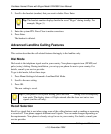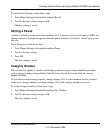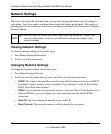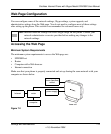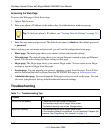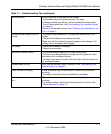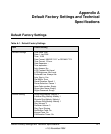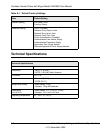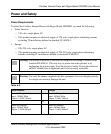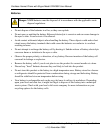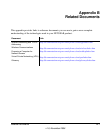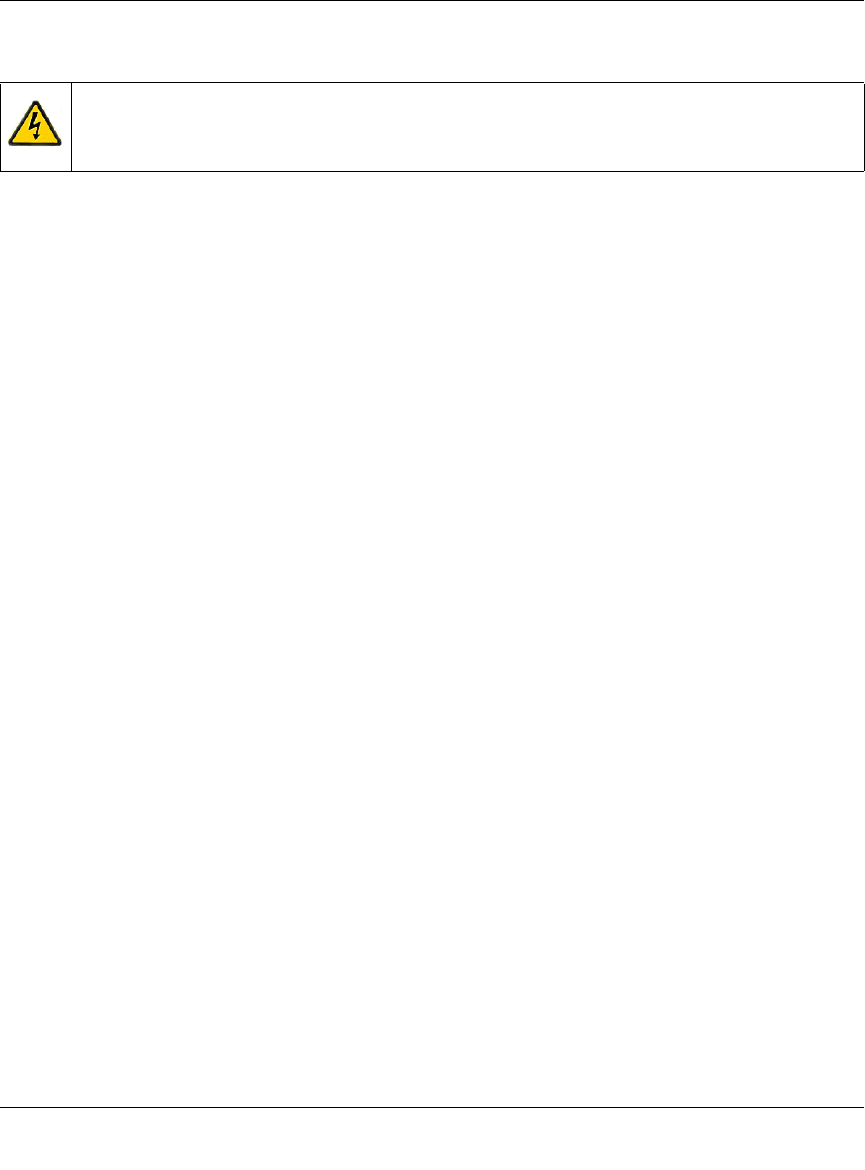
Cordless Internet Phone with Skype Model SPH200D User Manual
A-4 Default Factory Settings and Technical Specifications
v1.0, November 2006
Batteries
• Do not dispose of the batteries in a fire, as they can explode.
• Do not open or mutilate the battery. Released electrolyte is corrosive and can cause damage to
the eyes or skin. It can be toxic if swallowed.
• Avoid contact with metal objects when handling the battery. These objects could make short
circuit across the battery terminals that could cause the batteries or conductor to overheat
resulting in burns.
• Do not attempt to recharge the battery cell by heating it. Sudden release of battery electrolyte
can cause burns or irritation to the eyes or skin.
• Observe the proper polarity, or direction, of any battery. Reverse insertion of the battery cell
can result in leakage or explosion.
• Remove the battery cells if you do not plan to use the product for several months at a time.
• Discard any “dead” batteries because they are likely to leak into the product.
• Do not store this product or the battery in a high temperature area. Battery stored in a freezer
or refrigerator should be protected from condensation during storage and defrosting. Battery
should be stabilized at room temperature before using.
• Your battery is rechargeable and can be recycled once it outlives its usefulness. Depending
upon your local and state law, it might be illegal to dispose of this battery into a municipal
waste system. Check with your local solid waste company for more information on your
recycling options for the battery cells.
Danger: NIMH batteries must be disposed of in accordance with the applicable waste
disposal regulations.



